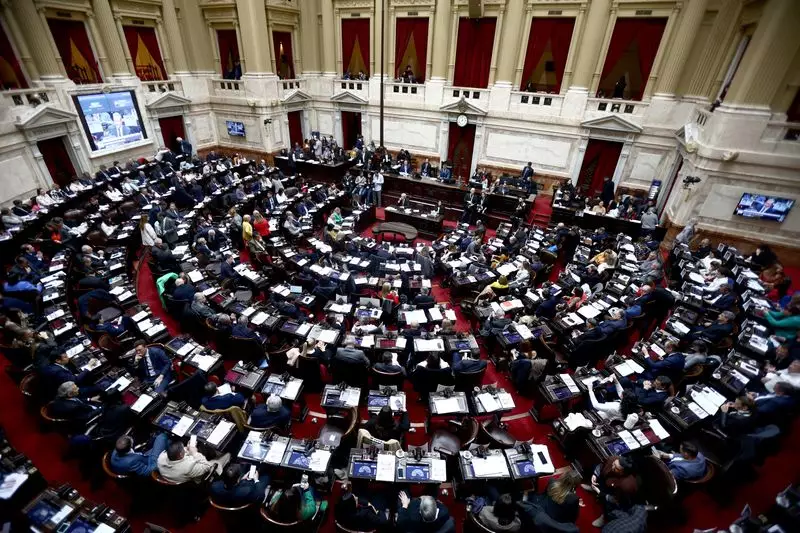Argentina’s President Javier Milei has recently achieved a big legislative win with the approval of economic reform measures by the country’s Congress. These measures, which aim to shake up the troubled economy, include investment incentives, privatization of state-owned entities, and tax restructuring. The approval of these reforms comes after months of delays caused by the opposition and negotiations within Congress to secure support.
President Milei, who took office just over six months ago, inherited a struggling economy plagued by triple-digit inflation, negative foreign currency reserves, and a declining economy. Despite these challenges, Milei has focused on implementing tough austerity measures to stabilize the country’s finances. His efforts have resulted in some success, including taming inflation, rebuilding reserves, and achieving a fiscal surplus. However, the economy continues to face significant hardships.
The economic reform bills proposed by the government have undergone significant modifications during the legislative process to garner support from Congress. While the initial drafts were ambitious, the final versions have been scaled back to accommodate the concerns of various lawmakers. The government’s small minority in Congress has necessitated compromises and adjustments to the legislation to ensure its passage.
Public opinion on the approved economic reforms in Argentina is divided. Some citizens, like 34-year-old worker Samanta Monrroi, express concerns about the potential negative impact of the reforms, particularly in terms of tax changes and investment plans. Monrroi believes that the reforms may benefit foreign firms at the expense of the country. On the other hand, individuals like Nicolás Lio, a 34-year-old medical representative, acknowledge the necessity of the reforms given the country’s longstanding economic challenges. Lio emphasizes the need to make sacrifices and embrace changes in order to see improvements in the future.
Following the approval of the economic reform measures by both the Chamber of Deputies and the Senate, the legislation will now undergo final revisions before becoming law. The government remains optimistic about the potential impact of the reforms on the Argentine economy. However, center-left opposition legislators have raised concerns about the constitutionality of certain provisions and have threatened legal action to block their implementation. The ongoing disagreements and debates surrounding the reforms highlight the complex and contentious nature of economic policymaking in Argentina.
Argentina’s approval of economic reform measures represents a significant milestone for President Javier Milei’s administration. Despite facing challenges and divisions among the public and lawmakers, Milei has managed to secure support for his reform agenda. The ultimate success and impact of these reforms on the country’s economy remain uncertain, but they signal a renewed effort to address longstanding economic issues in Argentina. As the legislative process continues and implementation begins, the true effects of the reforms will become more apparent, shaping the future trajectory of Argentina’s economy.

